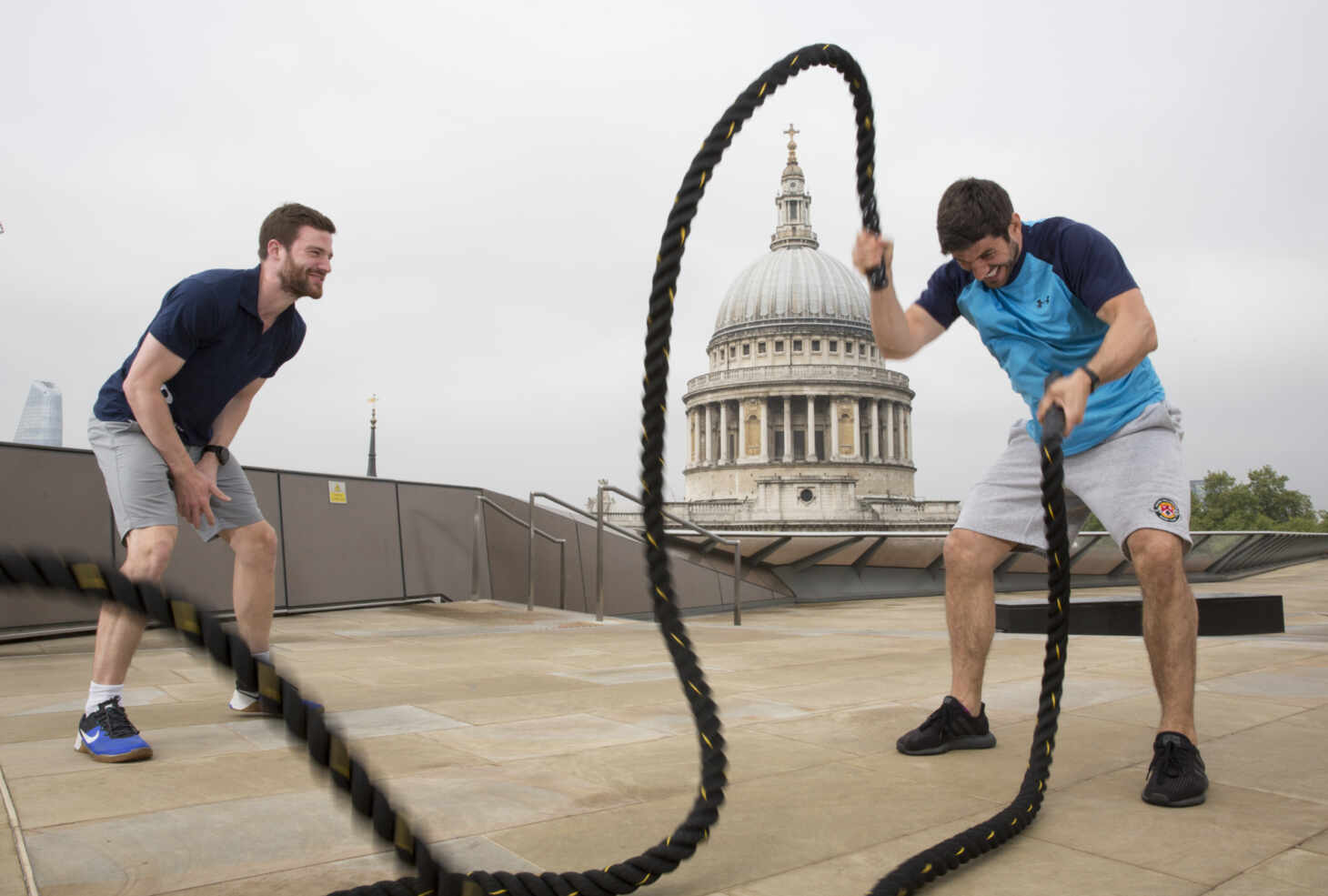Off-Season Training for Endurance Athletes

Pure Sports Medicine
- 21 September, 2018
- Exercise
- 2 min read
With winter upon us and the running and cycling calendar behind us, we can look to the gym for the opportunity to cure those pestering niggles and work on any weaknesses while still training at a relatively high intensity.

Off-season training benefits
Endurance athletes can achieve many benefits by replacing rain-soaked dark runs, for the warmer, safer environment of the gym.
Improved muscle recruitment
For example, the benefits of resistance training are plentiful because it improves muscle recruitment, which is the strength and durability of your muscles.
This is because a muscle is made up of muscle fibres and motor units. There are hundreds of motor units in a muscle, all stimulated by nerves. If the nerve signal to that motor unit is too weak then that motor unit, and its muscle fibres, will not contract.
Improved performance ability
Plus, resistance training will aid in the stimulation of multiple motor units and therefore a greater contraction of that muscle.
The more work you do for your muscles, and the stronger they become, will then allow you to produce greater production of force and strength, ultimately meaning you can perform to a higher standard when the season comes around.
Improved running economy
Resistance training also improves your running economy because it can improve your lower limb co-ordination and tendon stiffness.
Basically working on co-ordinating calf contractions, knee extensor contractions, glute contractions and core stabilisations will result in a more efficient running style.
This co-ordination will reduce your ground contact times meaning that you’ll need less motor unit recruitment to give the same force production. (1)
Additionally, these types of neurological changes result in decreased oxygen consumption when running at a relative speed, so you’ll feel and breathe better during your runs or rides.
Reduced energy spend & higher lactate thresholds
Strength training has shown to reduce the amount of energy you use when running – aka running economy – by improving your muscles’ recruitment efficiency, which we’ve already mentioned – see, it’s all linked!
This reduction allows you to run at higher speeds before crossing the lactate thresholds that will begin to slow you down, so you can run faster for longer and avoid that feeling of ‘hitting the wall’.
Prehab & Rehab tool
We are firm believers in strength training and find it to be an incredibly useful tool in injury rehabilitation as well as event training. We use it every single day in our clinics to both treat injuries and prevent them, something we like to call ‘prehab‘. After all, prevention is best!
In an effective and individualised rehabilitation programme, off-season strength training can restore muscle imbalances and strengthen previous weaknesses that may have otherwise resulted in injury.
Low impact work focusing solely on non-functioning muscles can get them re-firing again and your movement mechanics restored. So it really is a win win!
The bottom line is that ultimately, off-season training will improve your on-season performance, so enjoy the time off from the road, you’ve earned it! But don’t let your body lose all you’ve gained during event season. Treat it with love, care and a strength and conditioning programme to prepare yourself for next season.
References:
1. Paavolainen, L., Hakkinen, K., Hamalainen, I., Nummela, A., Rusko, H. (1999) Explosive strength-training improves 5km running time by improving running economy and muscle power Journal of Applied Physiology 86, 1527-1533

Advice
Over the last 20+ years our experts have helped more than 100,000 patients, but we don’t stop there. We also like to share our knowledge and insight to help people lead healthier lives, and here you will find our extensive library of advice on a variety of topics to help you do the same.
OUR ADVICE HUBS See all Advice Hubs

